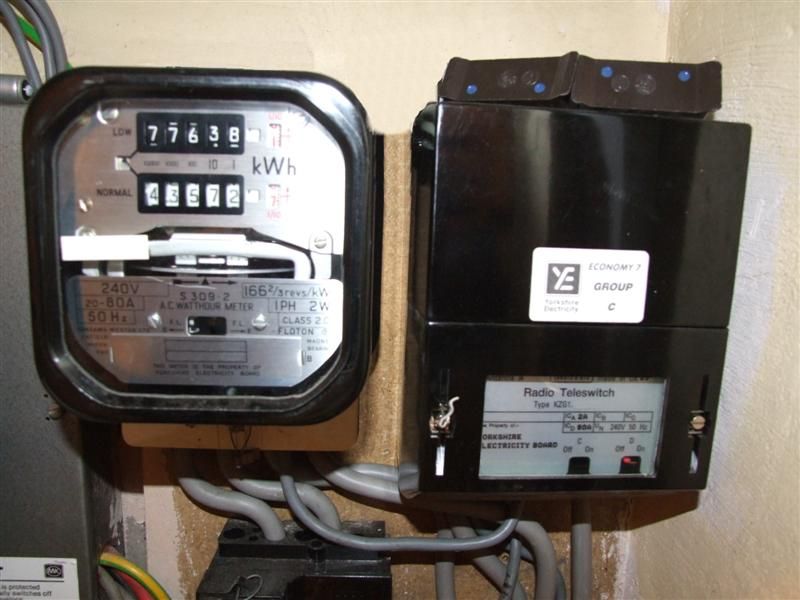Domestic energy vs Business energy:
A Complete Guide

What is the difference between domestic energy and business energy?
Although energy for domestic and commercial premises comes from the same source and even sometimes from the same supplier, there are many differences between the two. This means that comparing business energy quotes isn't as simple as comparing quotes for domestic energy. Here's everything you need to know.
What are the differences between domestic and commercial energy contracts?
Different rates and charges: Domestic and commercial bills differ depending on numerous factors such as location and annual consumption. However, business energy consumers may have to pay additional charges, such as VAT and climate change levies. Some businesses can access discounted VAT and exemption from climate change levy. If you think you might be eligible, contact us, and we can advise you on your next steps.
Long-term fixed rates:
Most domestic energy contracts last for a year, with an option to leave early. However, commercial energy deals can be locked in for two, three or four years, which means if the price for energy increases, your energy costs will be protected for the duration of your contract.
Longer switching windows:
If you want to switch suppliers at the end of your domestic fixed-rate contract, you can typically only arrange this 49 days or less before the contract end date without incurring fees. However, commercial energy deals tend to offer a standard switching window of 6 months, with some suppliers offering up to 12 months and further. If you are in the renewal window, request a quote from us, and our team of energy experts will help you find the best possible prices.
Fuel flexibility: Business gas and electricity are sold separately. Even if you have the same supplier, they will be two separate contracts, potentially with two separate end dates to remember. We can find you the best prices and arrange for your gas and electricity to have the same contract end date to make the process easier.
No price cap on business energy: The energy price cap was introduced in 2019 to help with rising energy prices. However, this is only protected by domestic standard variable rate contracts. Businesses are not protected from out-of-contract rates because there is no price cap for commercial energy prices.
Why is comparing business and domestic energy quotes so different?
Business energy is much more complicated than domestic energy. Domestic energy is pretty straightforward; most people use energy around similar times and for similar reasons. The only difference is that some households use more energy than others. Businesses, however, can massively differ in their usage, consumption patterns, and reasons for consumption. For example, a cafe and a bar may have similar usage, but the ways and times the energy is used will be completely different.
Additionally, risk factors need to be accounted for in business energy. When securing an energy contract, a business may sign a 3-year contract. In this scenario, the supplier will purchase the entire contract's worth of energy from the wholesaler. However, if that business goes bust 18 months into the contract, then the supplier has lost money on the contract. This is why
volume tolerance charges were introduced, and credit checks are necessary for business energy contracts.
What is the best way to get quotes for my business?
We recommend comparing rates from multiple suppliers to ensure you navigate the market thoroughly. However, this can be a long process, and realistically, you will have better things to do with your time than ringing up 20 different suppliers. But that's why we're here! Using a service like Purely Energy, you can
compare quotes from up to 30 suppliers and sort your contract out that same day. Not only can we access quotes from all suppliers quicker than if you were to go directly to them all, but we can also unlock cheaper rates due to our good relationships with the suppliers.
How can Purely Energy help?
If you have any queries about commercial energy or would like help lowering your energy costs, contact us at 0161 521 3400 or email us at Info@purelyenergy.co.uk. Alternatively, get a quick quote.
This Article was written by Megan Glover of Purely Energy. If there are any suggestions or questions - Please get in touch with us.
Frequently Asked Questions
Is there a cooling-off period on commercial energy contracts?
No. There is no cooling-off period on commercial energy contracts. Before signing a contract, you should double-check that you have read and agreed to all the terms and conditions and are 100% satisfied with the rates.
Can I switch suppliers if I rent my premises?
If your tenancy agreement states that you must pay your landlord for your energy costs, they will likely manage your energy contracts. However, you should still talk to your landlord and ask them if you can shop around for better deals. If you are responsible for paying your energy costs directly to the supplier, you can go to whatever supplier you'd like. But we'd always recommend letting your landlord know first.
Will there be hidden fees if we agree to a business energy contract with Purely Energy?
Never. Energy broker commissions are always communicated to the customer and clearly outlined on your energy contract. The commission is always paid to us directly from the supplier, not from you.




